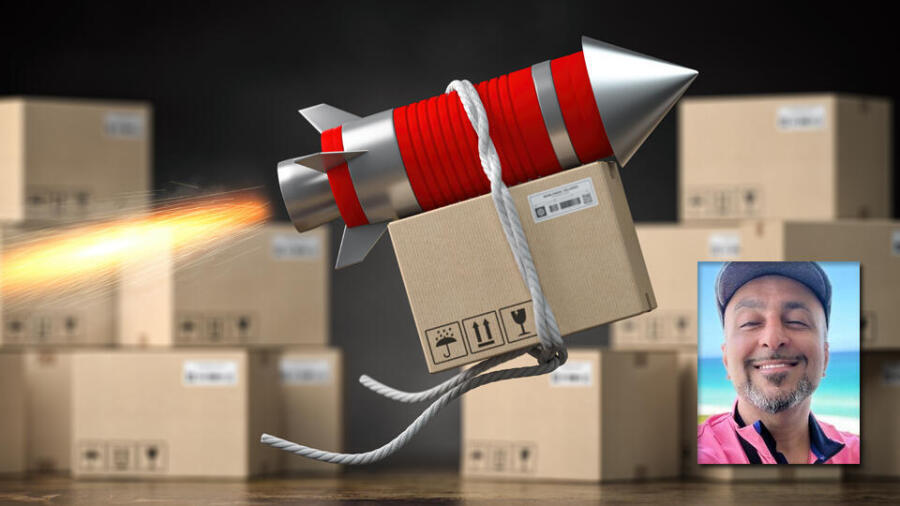In September, when the iPhone 16 was released, a person in India had the brand-new model delivered to him — while he was waiting in line at an Apple Store, before reaching the front for his turn. How? By ordering on Zepto, one of the leading “quick commerce” platforms that are changing how consumers shop in India. A relatively new form of ecommerce, quick commerce operates on an ultra-fast 10-minutes-or-less delivery model.
Co-founded by two young Stanford dropouts, Zepto has raised over $1.5 billion since its launch. Another leading player, Blinkit, was acquired by food delivery giant Zomato and is now more valuable than its new parent company. These ventures started out as grocery-delivery platforms, but have expanded to deliver PlayStations, iPhones, tech accessories, gift baskets, health care products, makeup, TV sets, flowers and anything else you can imagine, all in under 10 minutes.
By and large, India’s sexual wellness market is already a gold mine.
How does 10-minute delivery work?
Quick commerce companies in India operate networks of warehouse distribution centers known as “dark stores.” Blinkit, for example, has such stores located every 2 kilometers. As a result, busy Indians are able to get their staples and necessities almost instantly. This model works successfully because of the fragmented retail market, urban India’s demand for instant gratification, and the availability of cheap labor to reduce costs.
If you could get something delivered to your doorstep in a fraction of the time it would take you to get dressed and drive to the mall or grocery store, with a delivery fee of less than 50 cents during surge hours, why wouldn’t you choose that option?
Sexual wellness and quick commerce: A marriage made in Heaven
In recent years, India has been undergoing a sexual revolution. The combination of social media, the availability of pleasure products and increased awareness about sexual wellness has led to a phenomenal change in how people perceive, accept and appreciate pleasure in their lives and relationships. Consumers in the 20-to-40 demographic are more curious, bolder, and looking for premium-quality products for their pleasure needs.
To capitalize on the exponential growth and potential in this market, quick-commerce players like Blinkit, Zepto, Swiggy and a horde of others began adding sexual wellness and pleasure products to their offerings. Perhaps unsurprisingly, “instant gratification” turns out to be a perfect fit for our industry. The quick commerce model is prompting many Indians who might previously have been on the fence about buying sexual wellness products to take the leap.
Meanwhile, in a country where — despite the recent progress mentioned above — the pleasure industry must still contend with moral and cultural judgments as well as legal hurdles, the quick commerce model is helping us overcome those challenges.
As XBIZ reported earlier this year, there remains legal wrangling over whether pleasure products fall under the category of “obscene” materials, which Indian law still prohibits. And like pleasure product businesses elsewhere, advertising options can be limited by unclear and inconsistent platform rules and laws.
Fortunately, making vibrators, butt plugs and massagers easily and quickly accessible on mainstream and household apps helps shoppers see them as essential health products. This is helping to change overall perceptions, making pleasure products more acceptable to the general population, who are then more willing and tempted to buy them.
Why this shift is happening now
One source of the fast-changing attitudes enabling this new phenomenon is the fact that India has the world’s largest youth population. Millennials and Gen Zers are choosing convenience over cultural taboos, eager to have something delivered to their doorstep that amplifies their pleasure experience. These cohorts’ increased focus on self-care has further contributed to the boom in the sexual wellness industry.
The trend extends beyond India. The Lovehoney Group recently partnered with food delivery service Just Eat Takeaway as that company ventures into the self-care category by offering Lovehoney products for home delivery in the U.K., Austria and Denmark.
By and large, India’s sexual wellness market is already a gold mine. Now, the quick-commerce model is providing an additional boost so powerful that it portends an even brighter future for the pleasure industry. Based on current trends, quick commerce could ultimately become the single most important tool for bringing sexual wellness and pleasure into the everyday household.
Raj Armani is the COO and co-founder of online retailer IMbesharam.







